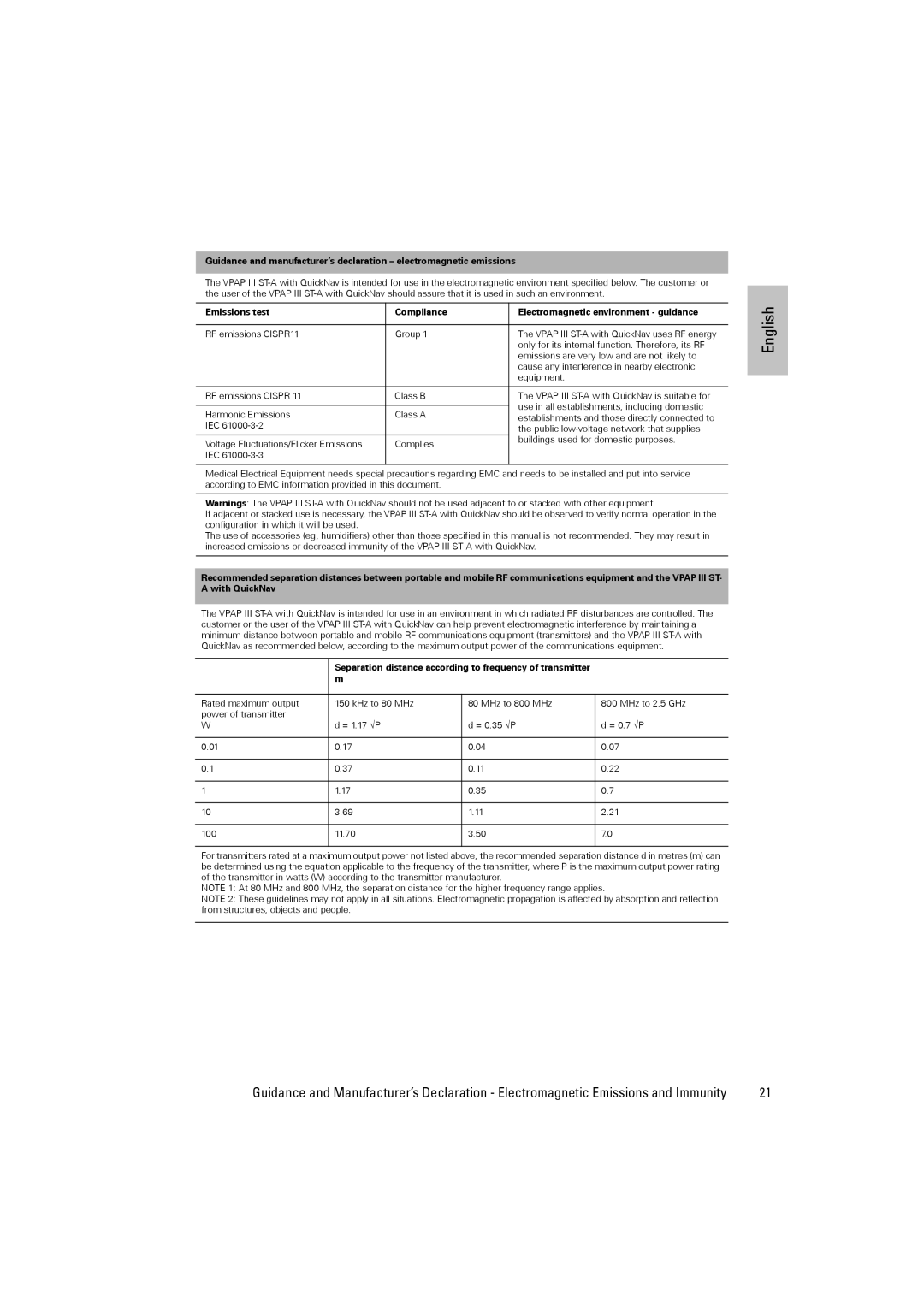
Guidance and manufacturer’s declaration – electromagnetic emissions
The VPAP III
Emissions test | Compliance | Electromagnetic environment - guidance | |
|
|
| |
RF emissions CISPR11 | Group 1 | The VPAP III | |
|
| only for its internal function. Therefore, its RF | |
|
| emissions are very low and are not likely to | |
|
| cause any interference in nearby electronic | |
|
| equipment. | |
|
|
| |
RF emissions CISPR 11 | Class B | The VPAP III | |
|
| use in all establishments, including domestic | |
Harmonic Emissions | Class A | ||
establishments and those directly connected to | |||
IEC |
| ||
| the public | ||
|
| ||
Voltage Fluctuations/Flicker Emissions | Complies | buildings used for domestic purposes. | |
| |||
IEC |
|
| |
|
|
|
Medical Electrical Equipment needs special precautions regarding EMC and needs to be installed and put into service according to EMC information provided in this document.
Warnings: The VPAP III
If adjacent or stacked use is necessary, the VPAP III
The use of accessories (eg, humidifiers) other than those specified in this manual is not recommended. They may result in increased emissions or decreased immunity of the VPAP III
Recommended separation distances between portable and mobile RF communications equipment and the VPAP III ST- A with QuickNav
The VPAP III
Separation distance according to frequency of transmitter m
Rated maximum output | 150 kHz to 80 MHz | 80 MHz to 800 MHz | 800 MHz to 2.5 GHz |
power of transmitter | d = 1.17 √P | d = 0.35 √P | d = 0.7 √P |
W | |||
|
|
|
|
0.01 | 0.17 | 0.04 | 0.07 |
|
|
|
|
0.1 | 0.37 | 0.11 | 0.22 |
|
|
|
|
1 | 1.17 | 0.35 | 0.7 |
|
|
|
|
10 | 3.69 | 1.11 | 2.21 |
|
|
|
|
100 | 11.70 | 3.50 | 7.0 |
|
|
|
|
For transmitters rated at a maximum output power not listed above, the recommended separation distance d in metres (m) can be determined using the equation applicable to the frequency of the transmitter, where P is the maximum output power rating of the transmitter in watts (W) according to the transmitter manufacturer.
NOTE 1: At 80 MHz and 800 MHz, the separation distance for the higher frequency range applies.
NOTE 2: These guidelines may not apply in all situations. Electromagnetic propagation is affected by absorption and reflection from structures, objects and people.
English |
Guidance and Manufacturer’s Declaration - Electromagnetic Emissions and Immunity | 21 |
